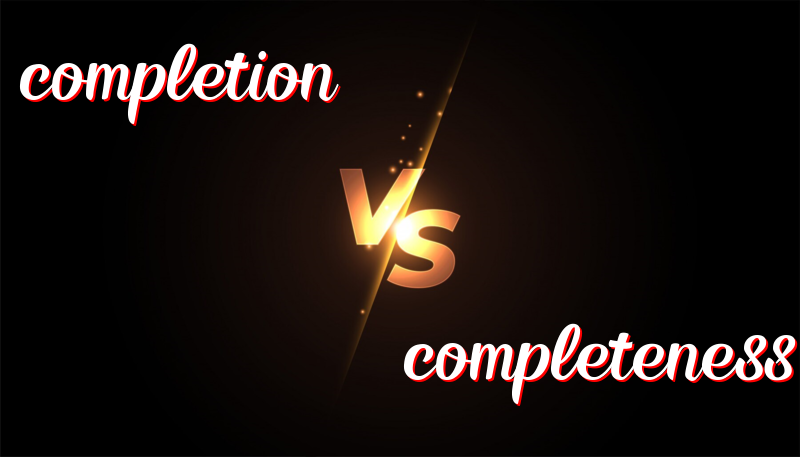英語單詞completion 與 completeness的區別
August 25, 2024
完成 (Completion) 與 完整性 (Completeness) 的區別
詞語歷史
英文單詞 “completion” 和 “completeness” 都源自拉丁語。 “Completion” 起源於拉丁語 “completio”,意思是「完成」或「結束」。”Completeness” 則起源於「completus」,意指「完整」或「完備」。
如何使用 “Completion”
“Completion” 指的是某項活動或任務的完成。它表示某個過程已經達到終點並且已經完成。
“Completion” 的五個例句
- The completion of the project is scheduled for next week.
該項目的完成預定在下周。 - He celebrated the completion of his degree.
他慶祝學位的完成。 - The road’s completion was delayed due to weather.
由於天氣原因,道路的完成被延遲了。 - Upon completion of the course, you will receive a certificate.
課程完成後,你將獲得證書。 - The team worked hard to ensure the completion of the task.
團隊努力工作以確保任務的完成。
如何使用 “Completeness”
“Completeness” 與 “completion” 不同,它指的是某事物的完整性或完備性。它強調整體性及無缺漏。
“Completeness” 的五個例句
- The completeness of the report impressed the managers.
報告的完整性給經理們留下了深刻的印象。 - She checked the project for completeness.
她檢查了項目的完整性。 - The completeness of his work shows his attention to detail.
他工作的完整性顯示了他對細節的關注。 - For completeness, include all the necessary documents.
為了完整性,請包含所有必要的文件。 - The archaeologists praised the completeness of the excavation site.
考古學家稱讚了挖掘現場的完整性。
記住區別的技巧
要記住 “completion” 和 “completeness” 的區別,可以這樣想:”Completion” 關注的是動作的「結束」,而 “Completeness” 則專注於「完整」沒有缺漏。
總結
“Completion” 用於描述某項活動或任務的結束和完成,而 “Completeness” 用於描述某事物的完整性和無缺漏。記住,它們雖然來源相似,但用法和意思有所不同。

Leave a Reply
You must be logged in to post a comment.